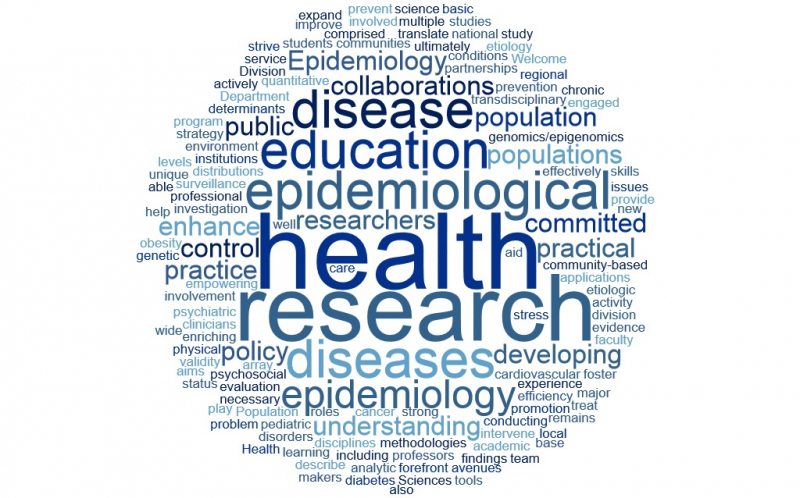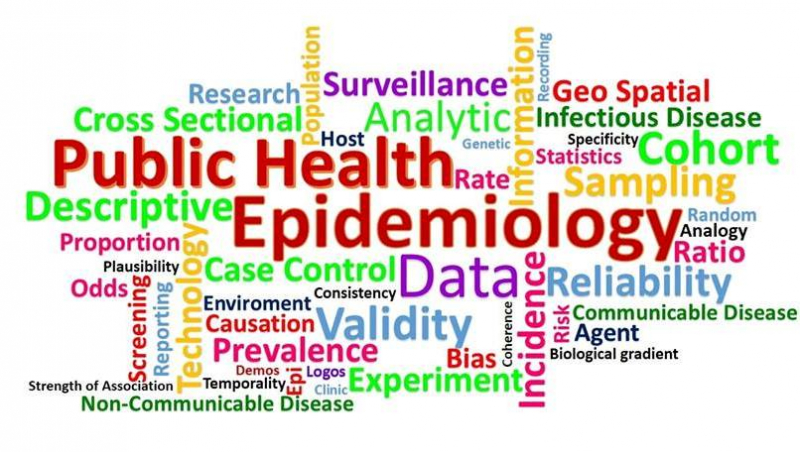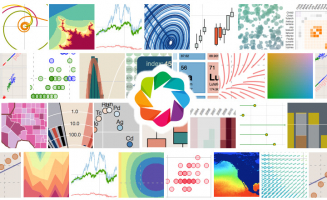Top 8 Best Online Epidemiology Courses
Epidemiology is the study of the distribution and determinants of health-related states in specific populations, as well as the application of that knowledge ... read more...to the prevention of disease. Toplist has compiled for you the top 8 best online epidemiology courses.
-
Epidemiological investigations can reveal important information about the prevalence of an illness, its possible causes, and the efficacy of existing therapies. When attempting to address such a topic, choosing a suitable study design can go a long way. This, however, is far from sufficient. For a variety of reasons, a study can provide skewed results. This course includes an overview of some of these characteristics as well as tips on how to deal with bias in epidemiological studies.
This Validity and Bias in Epidemiology course will teach you about the different types of bias and how they can affect your research findings. The focus will next shift to the concept of confounding, with an examination of various approaches for detecting and controlling confounding in various study designs. The phenomena of effect modification, which is critical to understanding and interpreting study results, will be discussed in the final module of this course. They will wrap up the course with a larger discussion of causality in epidemiology, emphasizing how you may use all of the techniques you have learned to determine whether your data show a true relationship and if it is causal. This is definitely one of the best online epidemiology courses.
Rating: 4.9/5
Duration: 8 hours
Level: Intermediate level (A background in health sciences or/and quantitative methods would be useful, but not essential)
Link: coursera.org/learn/validity-bias-epidemiology
https://www.augusta.edu/ 
https://www.goodwin.edu/ -
Every year, thousands of new epidemiological studies are done, the results of which can have a significant impact on how we live our lives. Data from such studies is used to make decisions on what you eat, how much you exercise, where you live, and what care you will receive if you become ill. This specialization is designed to provide you with the skills you need to appropriately understand epidemiological research, consider its limitations, and develop your own investigations. The first course in the specialism, Measuring Disease in Epidemiology, examines the most common epidemiological measurements and how they can be used to influence public health policy, screening, and preventative decisions.
Study Designs in Epidemiology, the second course, gives a review of the most popular study designs, as well as their strengths and limitations. Validity and Bias in Epidemiology, the third course, builds on the essential principles taught in the prior courses to explore bias and confounding, as well as how they may affect study results. It also teaches how to avoid and control bias and confounding, as well as how to think critically about causality. You will have obtained the necessary abilities to design and critique epidemiological research by the end of this specialization, and you will be able to pursue more advanced epidemiology courses. Despite the fact that this specialization is part of the GMPH curriculum, it can be pursued independently.
Rating: 4.8/5
Duảtion: 3 months (2 hours per week)
Level: beginner
Link: coursera.org/specializations/public-health-epidemiology
https://moffitt.org/ -
Imperial College London is a top ten university in the world, with a reputation for research, engineering, medicine, and business prowess. The hotel is centrally placed in London. Imperial College is a multifunctional center for education, research, translation, and commercialization that uses science and innovation to address global issues.
Infectious diseases are the focus of this Global Disease Masterclass course. They have chosen four disease categories to focus on: HIV, Malaria, Emerging Infectious Diseases (Ebola and Zika), and Tuberculosis (TB). They chose these diseases because they cover a wide variety of disease types and allow you to examine significant topics that are relevant to other diseases as well. They will approach each ailment in the same way: they will start with the disease's etiology and epidemiology. They then demonstrate how data on this disease can be used to deduce key trends and patterns.
They then look at the interventions that can be utilized to combat the condition, which usually includes both prevention and therapy, as well as how policies have been formed to combat the disease. They conclude by discussing the entire disease matter with an outside expert.
Rating: 4.8/5
Duration: 18 hours
Level: beginner level
Link: coursera.org/learn/global-disease-masterclass-communicable
https://homelandprepnews.com/ 
https://www.news-medical.net/ -
Modern medicine is built on the foundation of evidence. Clinical research provides this data, pointing health professionals in the direction of answers to problems they encounter on a daily basis. Transferring existing medical problems to a research setting is a difficult procedure that necessitates careful thought. Clinical epidemiology tries to solve this by employing well-established research methods in human populations while remaining focused on the clinical issue at hand.
The ideas and practice of clinical epidemiology are taught in this course, which draws on real-world difficulties faced by medical professionals and expands on current clinical research examples. Medical researchers will learn how to transform real-world clinical issues into research questions that may be investigated, as well as get insight into some of the most critical factors to consider when conducting an epidemiological study.Diagnose, prognosis, treatment, and etiology are the four main subjects that will be covered. Through professional lectures, peer interaction, and review assignments, students will have a better knowledge of the topics covered in this course.
Rating: 4.8/5
Duration: 13 hours
Level: Intermediate level
Link: coursera.org/learn/clinical-epidemiology
https://www.bu.edu/ -
Choosing the right study design is a crucial decision that will decide whether or not your study will answer your research topic satisfactorily. A short glance at the contents page of a biomedical journal or the health news section of a news website will reveal that epidemiological research can be done in a variety of methods. The primary epidemiological study designs will be covered in this Study Designs in Epidemiology course, including cross-sectional and ecological studies, case-control and cohort studies, as well as the more sophisticated nested case-control and case-cohort designs. The third lesson focuses on randomized controlled trials, which are frequently regarded as the best study design, particularly in clinical research.
You will also learn how to recognize the benefits and limits of various study designs. You will be able to select the most appropriate study design based on the research topic, available time, and resources by the end of this course.
Rating: 4.8/5
Duration: 8 hours
Level: Intermediate level (A background in health sciences or/and quantitative methods would be useful, but not essential)
Link: coursera.org/learn/study-designs-epidemiology
https://coastalhealthdistrict.org/ 
https://sph.umd.edu/ -
Epidemiological studies are all over the place. Every day, you come across epidemiological research and the influence of their conclusions, even if you are not aware of it. Obesity is on the rise in high-income countries, while malaria is killing millions of people in low-income countries, as you have surely heard. It is well known that smoking causes cancer and that physical activity helps to prevent heart disease. These facts may appear self-evident today, but they were only discovered after decades of epidemiological research. Starting with the metrics used to describe the frequency of a disease or health-related condition, you will master the core tools of epidemiology that are required to conduct such investigations in this Measuring Disease in Epidemiology course.
You will also learn how to quantify the strength of an association and the difference between causation and association. In the second half of the course, you will apply what you have learned to explain different prevention techniques, identify the strengths and weaknesses of diagnostic tests, and decide whether or not a screening program is necessary. Ke.ep reading to discover more best online epidemiology courses
Rating: 4.7/5
Duration: 10 hours
Level: Beginner
Link:coursera.org/learn/measuring-disease-epidemiology
https://www.bmj.com/ 
https://www.ukri.org/ -
Epidemiology is the study of the distribution and determinants of diseases, health conditions, or events among populations, as well as the application of that knowledge to address health issues. It is sometimes referred to as "the cornerstone" of public health. Epidemiology: The Basic Science of Public Health is one of the best online epidemiology courses. Students will get a greater understanding of epidemiology as it applies to real-life by applying the principles acquired in this Epidemiology course to contemporary public health concerns and issues. This will lead to better respect for public health initiatives and policies. Through the lens of epidemiology, this course examines public health challenges such as cardiovascular and infectious diseases, both locally and globally.
The course provider is the University of North Carolina at Chapel Hill, the country's first public university. They are noted for their cutting-edge research and teaching. For the past 25 years, UNC has produced the most Rhodes Scholars among US public research colleges, consistently recognized as the nation's best bargain for academic excellence.
Rating: 4.6/5
Duration: 7 hours
Level: n/a
Link: coursera.org/learn/epidemiology
https://devehealth.com/ 
https://www.publichealth.columbia.edu/ -
The University of Colorado Denver, in partnership with the Vanderbilt Genetics Institute at Vanderbilt University Medical Center and the International Genetic Epidemiology Society, is offering this course. On a national and international scale, the University of Colorado is a renowned leader in higher education. They work together to satisfy the different needs of the students and communities. In ways that are unique to Colorado and beyond, they stimulate innovation, inspire discovery, and support the expansion of knowledge.
This Genetic Epidemiology Foundations course is intended to give students the background and skills they will need to conduct statistical analysis of data from genetic association studies. Dr. Nancy Cox will present the history of genetics research, Dr. Bruce Weir will present foundational concepts in population genetics, Dr. Todd Edwards will present population structure in genetic association studies, Dr. Goncalo Abecasis will present quality control in genetic studies, Dr. Celia Greenwood will present an analysis of population-based case-control association studies, and Dr. Goncalo Abecasis will present an analysis of genetic association studies. This 6-module course also includes examples of concepts and references to literature.
Rating: 4.2/5
Duration: 17 hours
Level: Intermediate level
Link: coursera.org/learn/genetic-epidemiology
https://simply.science/





























